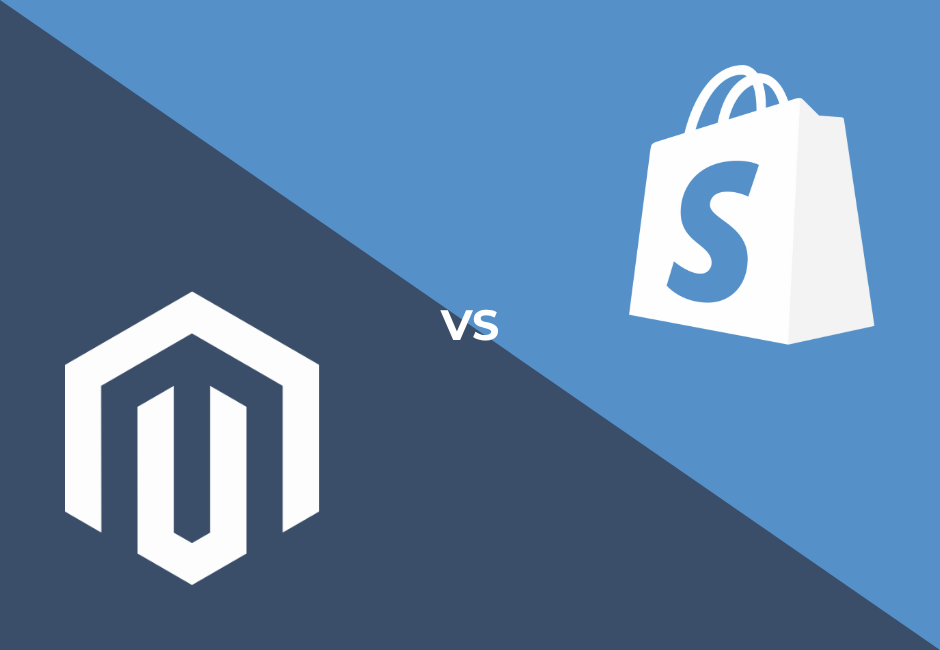Digital Marketing vs Affiliate Marketing
As I’m sure you know, there are many different marketing strategies a company can leverage to drive more traffic to their business. Although they may seem similar at first glance due to their vaguely digital nature, affiliate marketing is just one digital marketing tactic that you could employ within a larger strategy.
Digital Marketing vs Affiliate Marketing: An Overview
To put it simply, digital marketing involves many individual channels that fall under your control while affiliate marketing is a singular channel that relies on traffic driven from 3rd party sites. The choice between digital marketing and affiliate marketing – or the decision to integrate both – depends on your specific business needs, the nature of your products, and your marketing goals! While digital marketing offers comprehensive reach and deep customer engagement, affiliate marketing offers a highly targeted approach with a clear focus on conversions. Understanding these differences is necessary for any business looking to optimize its marketing strategy for maximum impact and efficiency.
What is Digital Marketing?
As mentioned before, digital marketing is a broad term that covers all marketing efforts that utilize the internet or electronic devices. This approach allows businesses to spread their brand across a wide range of platforms and touchpoints, enhancing visibility and engagement.

Key Digital Marketing Channels
- Search Engine Optimization (SEO): This involves optimizing your website and its content to rank higher in organic (non-paid) search engine results. This is crucial as solidifying a higher ranking for important keywords will lead to more traffic and increased visibility. SEO is also unique in that results snowball over time. It isn’t a money-in, money-out strategy like paid media. The longer you invest in a successful SEO strategy, the more money you stand to make month-over-month and year-over-year.
- Paid Media: This includes all forms of paid advertising like pay-per-click (PPC) ads, display ads, and social media ads. Paid media is a quick way to get your brand in front of a large audience and can be tailored to appear to specific demographics. For example, you can launch retargeting campaigns for existing companies and brand awareness campaigns to bring in new users. With paid media, you have much more control over the types of users you are bringing to the site.
- Email Marketing: Email marketing is a long-standing component of the digital marketing equation. By creating tailored email campaigns, businesses can communicate directly with customers and prospects, providing them with offers, content, and products they care about. This direct line of communication helps build trust and loyalty.
- Web Development: The backbone of digital marketing is a well-designed website. It serves as the hub for your content, information, and interactions with customers. An intuitive, user-friendly site can significantly improve engagement and conversion rates. In addition to being user-friendly, a properly built website is Google-friendly as well, maximizing your efforts across all of your digital marketing channels.
Other Digital Marketing Channels
- Social Media Marketing: This approach involves promoting your brand, products, and services on various social platforms like Facebook, Instagram, Twitter, and LinkedIn without paying for visibility. Social media marketing allows for direct interaction with your audience, fostering community engagement and brand loyalty.
- Video Marketing: Video marketing engages users organically on platforms like YouTube. This channel is excellent for building brand awareness and can be highly targeted based on user behavior, demographics, and content affinity. Video marketing can also help you in your other channels since you can use clips from videos for display ads and within the content you produce for SEO.
- Affiliate Marketing: This performance-based marketing channel is the subject matter of this blog. It's cost-effective as you only pay for successful conversions. Affiliate marketing extends your reach through the audiences of your affiliates, tapping into new networks and customer bases.
- Referral Marketing: Leveraging your existing customers, referral marketing encourages them to recommend your brand to their network. Often incentivized with discounts or special offers, this method builds trust and credibility, as people are more likely to trust recommendations from people they know. It's a powerful tool to accelerate word-of-mouth marketing and can significantly increase customer acquisition rates.
Benefits of Digital Marketing for Businesses
Digital marketing offers businesses several compelling advantages. Firstly, it provides an extensive reach, allowing companies to connect with potential customers worldwide with just a few clicks. Secondly, digital marketing campaigns can be easily tracked and analyzed, giving marketers valuable insights into customer behavior and campaign effectiveness. This data-driven approach helps in making informed decisions to optimize marketing strategies.
Moreover, digital marketing is cost-effective compared to traditional marketing methods. With options like targeting specific demographics, businesses can spend their marketing budget more efficiently, ensuring they reach their ideal audience. Finally, digital marketing offers the flexibility to adjust campaigns in real time, providing a distinct advantage in the fast-paced digital world.
By harnessing these components and benefits, businesses can create a strong digital presence, driving growth and enhancing customer interaction.
What is Affiliate Marketing?
Affiliate marketing is one form of digital marketing where businesses collaborate with external partners, known as affiliates, who promote their products or services.

How Affiliate Marketing Works
The process begins when a business partners with affiliates who have their own methods of reaching potential customers, such as through their own blogs, social media platforms, or websites. These affiliates use custom “affiliate links” or promotional codes to direct traffic to the business's website. When a purchase is made via these links or codes, the affiliate earns a commission. This setup benefits the business by allowing them to tap into the consumer base of the affiliates. When launching an affiliate marketing campaign, it is best to choose affiliates that serve users who share characteristics with your customers and you believe will want to buy your products or services. Here is an example…
Imagine Company A sells men’s razor blades. Company B writes articles related to sports news. Company A reaches out to Company B to promote their razor blades in Company B’s articles which drive a lot of traffic. The link that is on Company B’s site is a specialized link that allows Company A to precisely allocate sales coming from that link. Company A then pays Company B a commission on each sale (or a percentage of each sale) coming from the affiliate link. This partnership makes sense because the demographic that reads Company B’s articles has a lot of overlap with the demographic that buys Company A’s products.
Key Roles in Affiliate Marketing
- The Merchant: Also known as the creator, seller, or brand, the merchant is the one who creates the products or services. The merchant needs affiliates to reach a wider audience.
- The Affiliate: Sometimes called the publisher, the affiliate can be an individual or a company that promotes the merchant's products in an appealing way to potential consumers. Successful affiliates often have a sizable following or a specialized audience engaged in specific topics.
- The Consumer: The consumer is the driving force in affiliate marketing. They are the ones who click on affiliate links and purchase products, thus generating revenue for both the merchant and the affiliate.
Advantages of Using Affiliate Marketing
Affiliate marketing offers several benefits. It's risk-averse since merchants pay only for successful transactions, minimizing the risk of wasted marketing expenditures. It also allows for a broad marketing reach. Affiliates can come from diverse backgrounds and have access to various niches and audiences that the business may not reach alone. Moreover, it's easily trackable; every click and conversion can be monitored, giving businesses clear insights into how well their affiliate strategies are working.
This marketing model is especially useful for companies looking to expand their market or those with limited advertising budgets. By leveraging the skills and networks of affiliates, businesses can effectively increase their product visibility and sales with less upfront investment.
Digital Marketing vs Affiliate Marketing: A Comprehensive Comparison
When considering the most effective marketing strategies for your business, understanding the key differences between digital marketing and affiliate marketing is crucial. Both strategies offer unique benefits and can be pivotal in achieving your marketing goals, but they operate differently and cater to different needs.

Key Differences in Strategy & Execution
Digital marketing is a comprehensive approach that involves a variety of tactics including SEO, paid media, email marketing, and web development. It's primarily focused on building a complete online presence and driving traffic directly from these efforts. Digital marketing allows for direct interaction with consumers through multiple digital channels, enabling businesses to build brand awareness, engage with audiences, and drive conversions directly.
Affiliate marketing, however, relies on third-party influencers to drive traffic and sales. This strategy is performance-based, meaning affiliates are only compensated when their marketing efforts result in a sale. It’s a more targeted approach, as businesses can partner with affiliates whose audiences align closely with their target markets.
When to Choose Digital Marketing Over Affiliate Marketing
Choose digital marketing if your goal is to build a comprehensive online presence and control over your brand’s messaging. It’s ideal for businesses looking to engage directly with their audience through diverse channels and personalized content. Digital marketing is also suitable for those who want to gather detailed analytics to refine and optimize their marketing strategies continuously.
When to Choose Affiliate Marketing
Choose affiliate marketing if you prefer an investment where you pay for performance rather than potential. This method is excellent for businesses looking to expand their reach through established audiences of trusted influencers. It’s particularly effective if your products or services fit a specific niche that affiliates already cater to.
Integrating Both Strategies for Maximum Benefit
Many successful businesses integrate both digital and affiliate marketing to leverage the strengths of each. Using digital marketing, you can establish a strong brand and comprehensive online presence. Simultaneously, affiliate marketing can augment this reach by tapping into the focused audiences of your affiliates. This integrated approach maximizes exposure and impact, ensuring that all bases are covered from broad outreach and direct engagement to targeted, performance-based tactics.
Choosing the Right Marketing Strategy with 20North Digital Marketing
At 20North Digital Marketing, we harness a variety of digital marketing tools from SEO to paid media, email marketing, and web development to ensure your brand not only gains visibility but also engages and converts your target audience effectively. Our approach is data-driven, allowing for detailed analysis and strategic adjustments to optimize your campaigns continuously.
If you’re looking to expand your online presence and achieve real results, 20North Digital Marketing is your ideal partner. We invite you to contact us today to discuss how we can craft a digital marketing strategy that’s perfect for your business goals!




